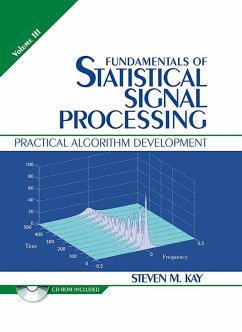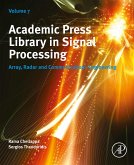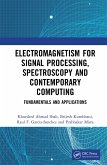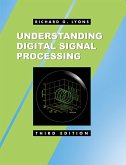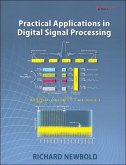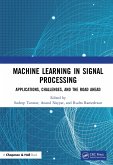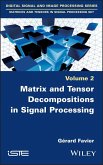The Complete, Modern Guide to Developing Well-Performing Signal Processing Algorithms
In Fundamentals of Statistical Signal Processing, Volume III: Practical Algorithm Development, author Steven M. Kay shows how to convert theories of statistical signal processing estimation and detection into software algorithms that can be implemented on digital computers. This final volume of Kay's three-volume guide builds on the comprehensive theoretical coverage in the first two volumes. Here, Kay helps readers develop strong intuition and expertise in designing well-performing algorithms that solve real-world problems.
Kay begins by reviewing methodologies for developing signal processing algorithms, including mathematical modeling, computer simulation, and performance evaluation. He links concepts to practice by presenting useful analytical results and implementations for design, evaluation, and testing. Next, he highlights specific algorithms that have "stood the test of time," offers realistic examples from several key application areas, and introduces useful extensions. Finally, he guides readers through translating mathematical algorithms into MATLAB® code and verifying solutions.
Topics covered include
Exercises are presented throughout, with full solutions.
This new volume is invaluable to engineers, scientists, and advanced students in every discipline that relies on signal processing; researchers will especially appreciate its timely overview of the state of the practical art. Volume III complements Dr. Kay's Fundamentals of Statistical Signal Processing, Volume I: Estimation Theory (Prentice Hall, 1993; ISBN-13: 978-0-13-345711-7), and Volume II: Detection Theory (Prentice Hall, 1998; ISBN-13: 978-0-13-504135-2).
In Fundamentals of Statistical Signal Processing, Volume III: Practical Algorithm Development, author Steven M. Kay shows how to convert theories of statistical signal processing estimation and detection into software algorithms that can be implemented on digital computers. This final volume of Kay's three-volume guide builds on the comprehensive theoretical coverage in the first two volumes. Here, Kay helps readers develop strong intuition and expertise in designing well-performing algorithms that solve real-world problems.
Kay begins by reviewing methodologies for developing signal processing algorithms, including mathematical modeling, computer simulation, and performance evaluation. He links concepts to practice by presenting useful analytical results and implementations for design, evaluation, and testing. Next, he highlights specific algorithms that have "stood the test of time," offers realistic examples from several key application areas, and introduces useful extensions. Finally, he guides readers through translating mathematical algorithms into MATLAB® code and verifying solutions.
Topics covered include
- Step by step approach to the design of algorithms
- Comparing and choosing signal and noise models
- Performance evaluation, metrics, tradeoffs, testing, and documentation
- Optimal approaches using the "big theorems"
- Algorithms for estimation, detection, and spectral estimation
- Complete case studies: Radar Doppler center frequency estimation, magnetic signal detection, and heart rate monitoring
Exercises are presented throughout, with full solutions.
This new volume is invaluable to engineers, scientists, and advanced students in every discipline that relies on signal processing; researchers will especially appreciate its timely overview of the state of the practical art. Volume III complements Dr. Kay's Fundamentals of Statistical Signal Processing, Volume I: Estimation Theory (Prentice Hall, 1993; ISBN-13: 978-0-13-345711-7), and Volume II: Detection Theory (Prentice Hall, 1998; ISBN-13: 978-0-13-504135-2).
Dieser Download kann aus rechtlichen Gründen nur mit Rechnungsadresse in A, B, BG, CY, CZ, D, DK, EW, E, FIN, F, GR, HR, H, IRL, I, LT, L, LR, M, NL, PL, P, R, S, SLO, SK ausgeliefert werden.

